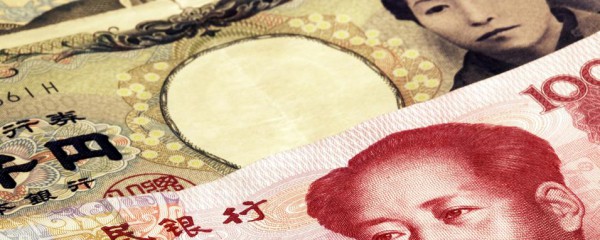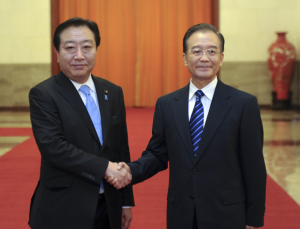11
Jan 2012
Direct Use of Yuan and Yen
Chinese Premier Wen Jiabao told visiting Japanese Prime Minster Yoshihiko Noda that China is willing to work with Japan in promoting the direct use of their respective currencies in bilateral trade.
China’s central bank announced shortly after the Wen-Noda talks to encourage the direct use of Chinese currency RMB, or the yuan, and Japanese yen in cross-border transactions between China and Japan.
The agreement is expected to give the Chinese yuan a more powerful role in international trade.
“As implications from the current global financial crisis continue to spread and the complexity and severity of the world and regional situations are worse than expected, it is necessary and possible that China and Japan join efforts to address the challenges and deepen strategic reciprocal ties,” Premier Wen said to Prime Minster Noda at the Great Hall of the People in Beijing.
The People’s Bank of China, the country’s central bank, has also been using so-called currency swap deals with other central banks so that foreign banks could supply more yuan to their customers. Currently, the PBOC has such deals with a dozen foreign central banks including Thailand, South Korea and New Zealand, totaling 1.2 trillion yuan.
Wen added that China also hopes to accelerate the process of building a free trade zone among China, Japan and the Republic of Korea as well as to boost East Asian monetary and financial cooperation.
The PBOC said in the online statement that the China-Japan financial cooperation might help reduce risks stemming from fluctuations of foreign exchange rates and transaction costs during trade settlement.
The PBOC also encouraged Japan to make direct RMB investments in the Chinese mainland.
The statement said the PBOC supports the development of the direct trading market of RMB and Japanese yen. The PBOC also allows Japanese companies to issue RMB bonds in Tokyo and other overseas markets and approves a trial program of RMB-bonds issuing by the Japan Bank for International Cooperation in the Chinese mainland.
According to Gao Haihong, international finance scholar at the Chinese Academy of Social Sciences, Asian nations need to restructure their growth patterns in order to enhance regional trade, investment and monetary cooperation as external demand from markets such as the United States and the European Union falter.
Extracts from www.news.xinhuanet.com and www.irna.ir
– See more at: http://www.sbeintl.com/
































